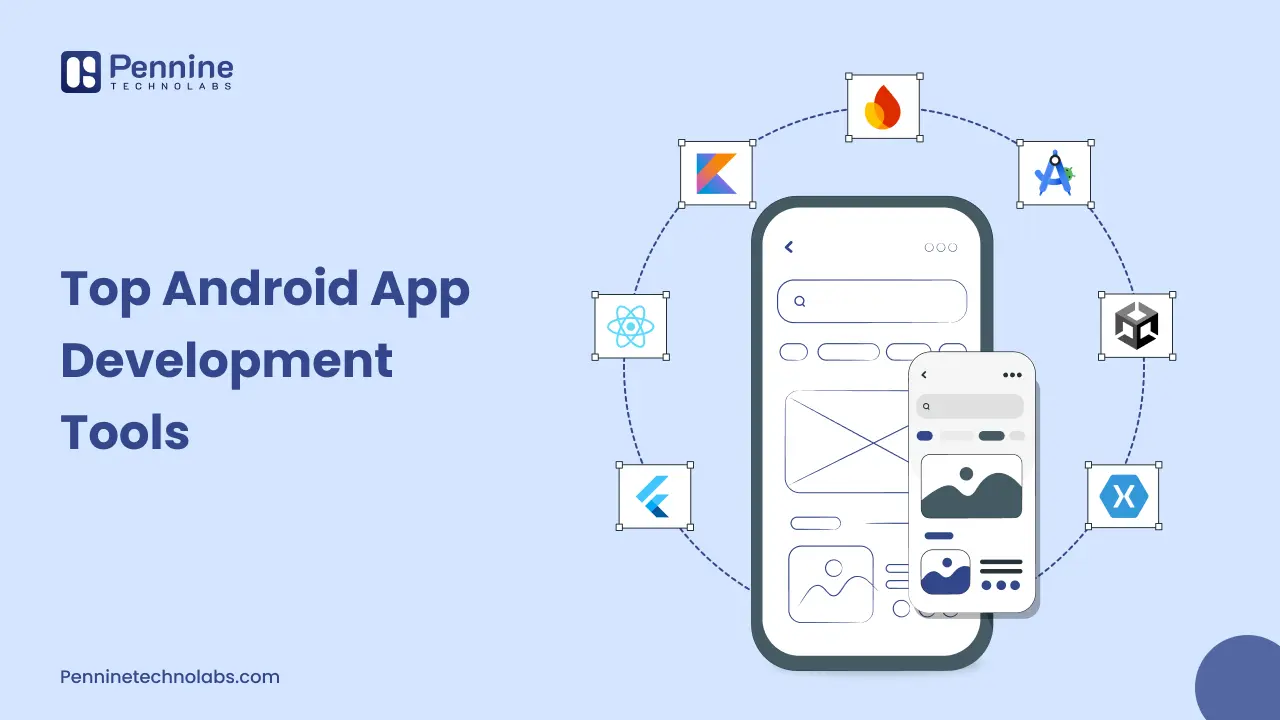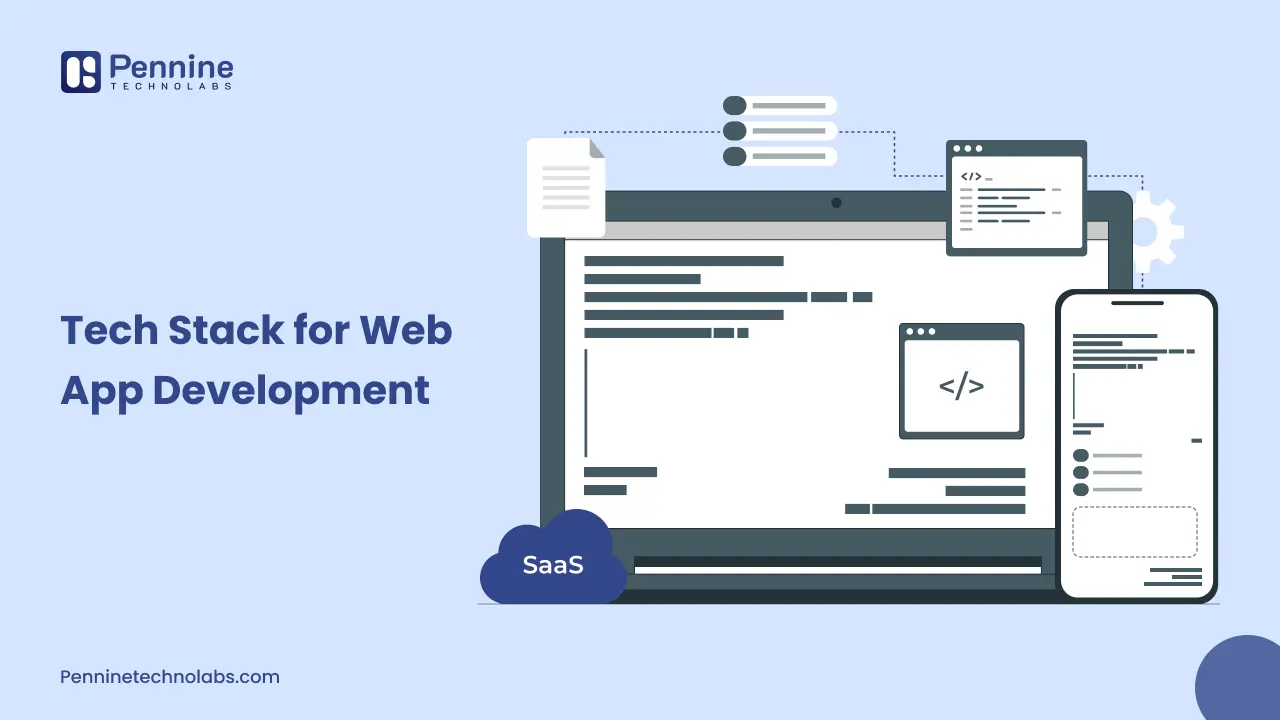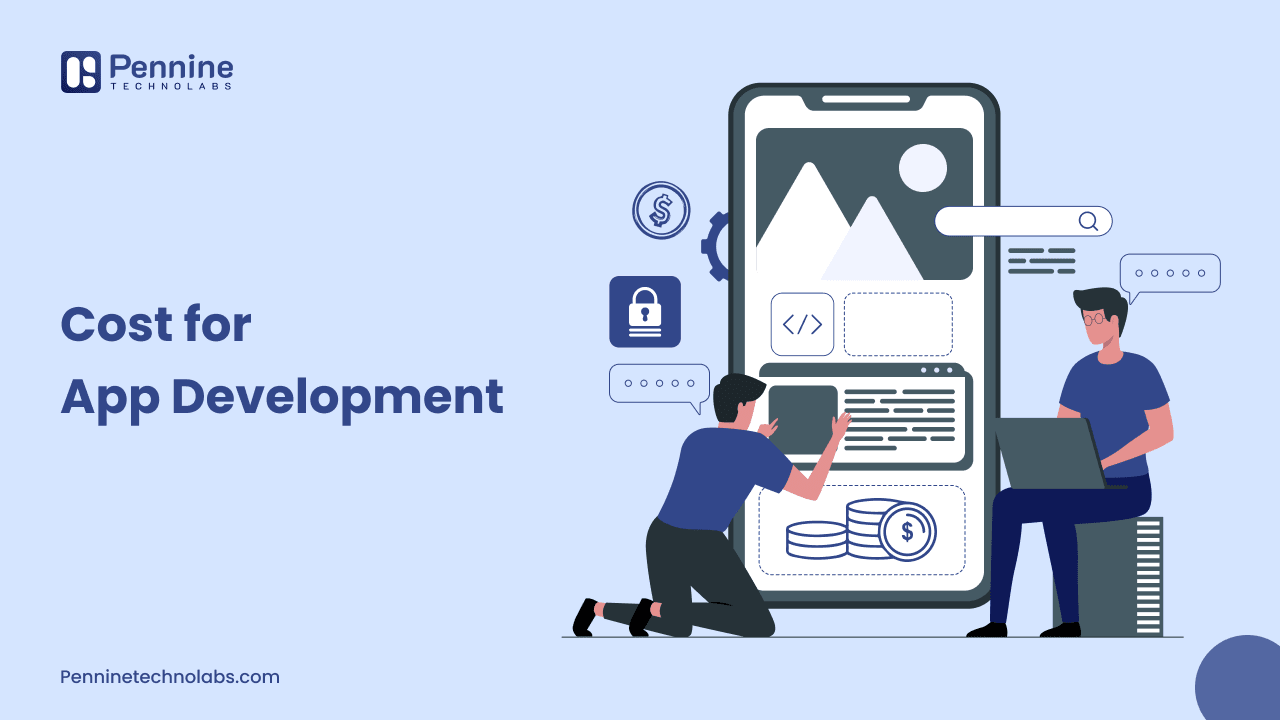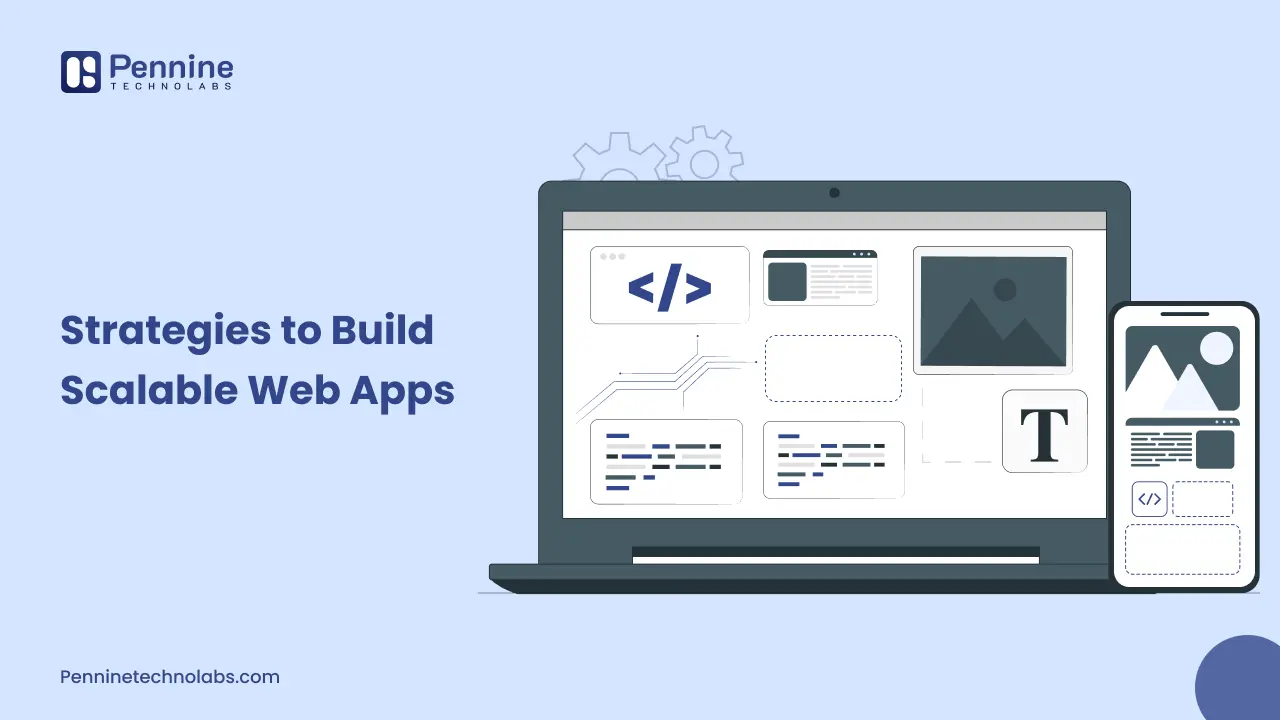Quick Summary: Choosing the right tool is important for building high-performing Android apps. The blog includes the most essential Android development tools, including Android Studio, Kotlin, Flutter, Firebase and Unity. Each device is detected with its major features, best use, professionals, opposition and pricing to help developers create efficient, scalable and user-friendly mobile applications for their clients.
Android is the most widely used mobile operating system globally. With such a massive user base, Android app development has become more in demand and competitive. To meet modern development standards and user expectations, developers must rely on the most effective and powerful equipment available today.
What is Android Development?
Android development is the process of creating applications for devices running the Android operating system. These apps can range from simple utilities to complex enterprise solutions. Developers write Android apps using languages like Java and Kotlin, usually within a dedicated IDE such as Android Studio.
Modern Android development also includes equipment for UI design, testing, backend integration and performance optimization. As the Android ecosystem develops, using the right equipment becomes necessary to maintain with the best practices, user experience standards and safety requirements.
Why These Tools Are Essential for Android Development
The Android development process includes several stages, including coding, designing, testing and deployment. Without the right tool, developers face issues such as poor app performance, debugging challenges and slow growth cycles.
These devices not only streamline workflows, but also enable developers to create scalable, safe and user-friendly apps. Choosing the correct combination of equipment helps to avoid useless coding, improve cooperation, and ensure rapid time to market. Simply put good Android app tools.
Best Android App Development Tools
These tools are reliably trusted by the world’s best app development companies for testing, deployment, and adaptation of the best Android app development software. Each Android development tool plays a specific role in the life cycle, and the overall app benefits from this.
1. Android Studio
Android Studio is an official integrated development environment for Android development supported by Google. Android Studio provides a powerful code editor, real-time testing tools and intelligent suggestions that make coding more efficient.
Android Studio Key Features
- Emulator underlying for immediate testing
- Code editor with smart assistant
- Layout Editor with Drag-and-Drop UI Tool
- Firebase Integration for backend Support
- Deep debugging and performing profiling
Android Studio is Best for
- Local Android app development
- Real-time code testing
- Kotlin and Java-based projects
Pros and cons
- Provides high productivity, but can be resource-intensive on the lower-end system.
Pricing
- Maintained by Google, free to use with all features.
2. Visual Studio with Xamarin
Visual Studio developers with XAMARIN allow developers to create Android apps using C# and the .NET Framework. It is ideal for businesses seeking cross-platform solutions without creating a different codebase.
Visual Studio Key Features
- Native performance on platforms
- Shared Codbase for Android and iOS
- Integration with Azure cloud services
- Rich debugging and Code navigation equipment
- Visual Design Interface for Layout
Visual Studio is Best for
- Cross-platform enterprise application
- C# developers are going mobile
- Cloud-connected mobile apps
Pros and cons
- Code reduces duplication, but may be a steep learning curve for Android-Fund developers.
Pricing
- Independent for individuals and small teams. Paid Plans are available for enterprises.
3. Flutter
Flutter is Google’s UI toolkit for building natively compiled Android, iOS, web, and desktop apps from a single codebase using Dart. Flutter development is flexible core UI components and soft animations make it popular for modern app development.
Flutter Key Features
- Hot reload for real-time updates
- Custom Widget for Expressive UI
- High-performance rendering engine
- Rich plugin ecosystem
- Built-in testing framework
Flutter is Best for
- Rapid MVP development
- Cross-platform UI-rich apps
- Startup and prototype
Pros and cons
- It is highly adaptable, but new users require a lot of Dart learning.
Pricing
- Free and open source, maintained by Google.
4. React Native
The React Native enables developers to create Android apps using JavaScript and React. It provides a re-component and native API access, making it a favorite among web developers for mobile integration.
React Native Key Features
- Modular architecture
- Real-time again load support
- Native performance with JavaScript
- Large library ecosystem
- Integration with third-party plugins
React Native is Best for
- Web-to-mobile infection
- Apps with a shared UI argument
- Rapid development
Pros and cons
- Gets growth, but can have display boundaries for the graphic-intensive app.
Pricing
- Free and open-source software supported by Meta.
5. Firebase
Firebase is a broad platform that provides backend services for mobile applications. It supports real-time data syncing, user authentication and analytics in an integrated platform.
Firebase Key Features
- Real-time database and firstore
- Crashlytics for error tracking
- Firebase authentication
- Push notification and cloud messaging.
- Analysis and Performance Monitoring
Firebase is Best for
- Scalable backend without servers
- Real-time apps like chat or streaming
- Reduce backend development time.
Pros and cons
- It applies fast but can be expensive with heavy use.
Pricing
- Starts with a generous free plan. Pay-as-you-use pricing is based.
6. Unity
Unity is a major game development engine that supports Android, iOS and many other platforms. It provides a visual environment and scripting equipment for the manufacture of 2D, 3D and AR apps.
Unity Key Features
- Real-time rendering engine
- Cross-Platform Development
- Visual scripting and asset integration
- Comprehensive asset stock
- Support for AR and VR experiences
Unity is Best for
- Mobile game development
- AR/VR App Creation
- Simulation and educational apps
Pros and cons
- Highly powerful, but it has a steeper learning curve for non-gamers.
Pricing
- Free for personal use. Paid levels for professionals and enterprises.
7. Kotlin
Kotlin is a modern programming language officially supported by Google for Android Development. It improves productivity and code safety while fully indicating with Java.
Kotlin Key Features
- Very concise and expressive Syntax
- Safety is built-in
- Expansion work
- Coroutines for async tasks
- Full jetpack composed support.
Kotlin is Best for
- Clean and safe Android coding
- Modernization of heritage Java projects
- High-performance apps
Pros and cons
- Code enhances clarity, but may require learning for Java-only Developers.
Pricing
- Completely Free and open source.
Popular Tools for Android App Development
Apart from the major tools mentioned above, the following are also widely used in Android Development Workflows:
1. Github & GIT – Version Control and Associate Code Management
2. Gradle – Develop automation and dependency management
3. LeakCanary – Memory leak detection for Android apps
4. Android Jetpack – Library and tools for modern Android architecture
5. Retrofit – Type-safe for Android HTTP client
6. Postman – API Testing and Integration Forum
7. Instabug – Real-time crash reporting and User Response
8. Lottie by Airbnb – Lightweight animation rendering for mobile apps
Conclusion
Using the right Android tools is not only about rapid growth. It is about the creation of apps that perform well and provide a spontaneous user experience. Each tool discussed in this blog offers an important objective in the Android Development Life Cycle.
Pennine Technolabs specializes in the development of Android applications using a modern technology stack, including Kotlin, Flutter, Firebase, and Android Studio. Whether you are building an MVP or an enterprise launching your next large solution, we offer efficient, reliable, and scalable Android apps to meet your business needs.
Let us help bring your Android app idea to life with the right tools and expertise.
FAQs for Android App Development
Which is the best software for Android app development?
Android Studio, the official Integrated Development Environment (IDE) for Android, is used for Android App Development. It offers powerful code editing, debugging, testing and performance all in one place.
Which tool is used for Android app development?
Android Studio is the best software for Mobile App development. It offers full support for kotlin, Java and Android SDK. Other software like Flutter, Unity, and Visual Studio can be alternatives for Mobile app development.
What are the 4 pillars of Android?
The four pillars for Android app can be considered as Activities, Services, Broadcast Receivers and Content providers to run your Android application smoothly.
Is Kotlin or Java better for Android?
Kotlin is now the preferred language for Android, and Google officially supports it for new Android projects. However, Java is widely used and supported for legacy applications.
What language is used to develop Android apps?
At Pennine Technolabs, we primarily develop with Kotlin, Java, Dart, and C++ with improved safety and productivity.



